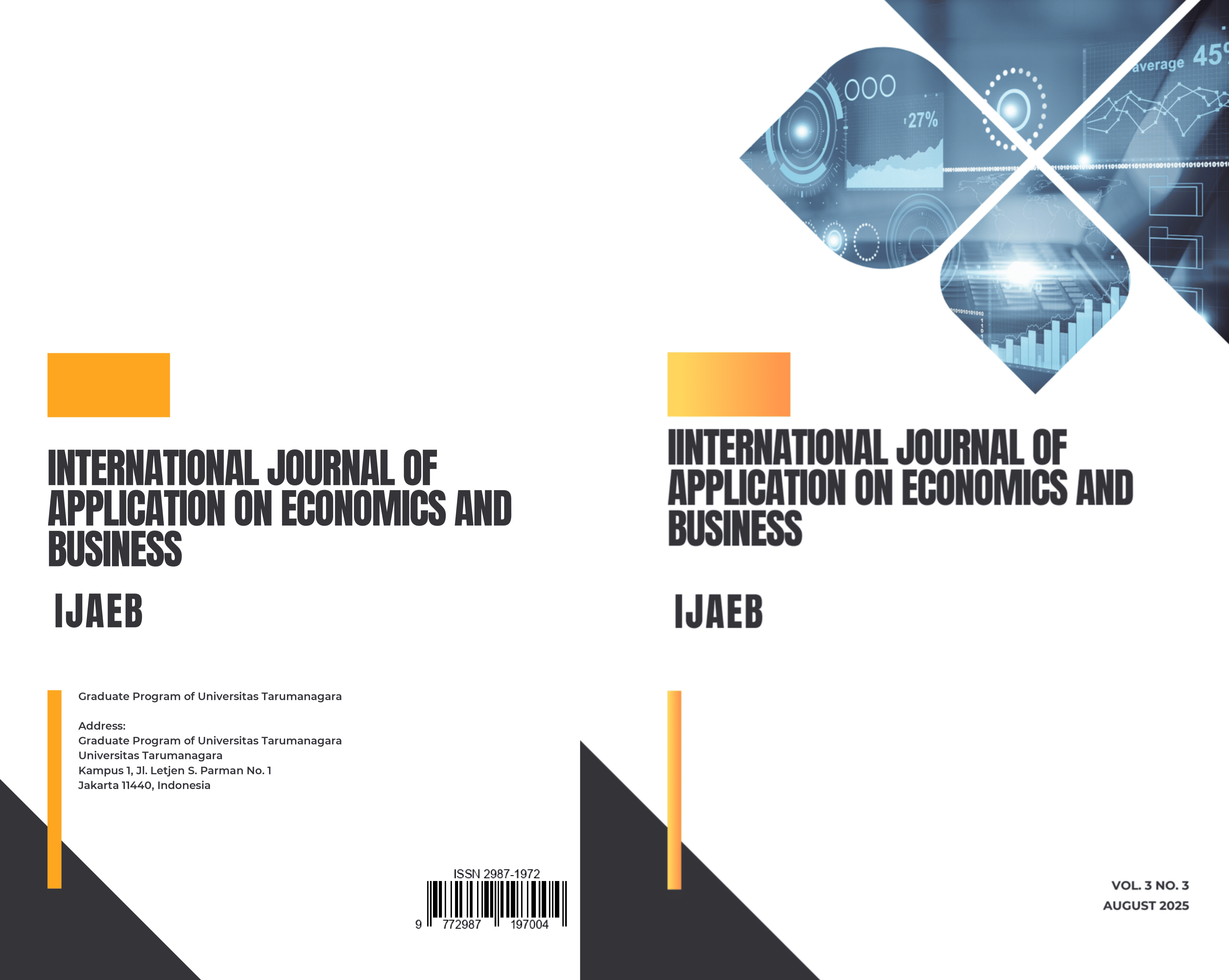PROFITCAPABILITY, NET WORKING CAPITAL, FIRM SIZE, AND LIQUIDITY FACTORS IN AFFECTING CASH HOLDING
Main Article Content
Abstract
Cash holding means cash in the corporate and/or there to be invested in physical assets and to be distributed to investors. Cash holding also plays a role in financing the corporate's opepercentagenal activities and to be on guard against urgent financing. The corporate must decide the right amount of cash held by the corporate. The amount of cash held by the corporate must not be excessive and must not be lacking either. If the cash held (cash holding) by the corporate is excessive, it will cause losses for the corporate because the cash held will not provide benefits to the corporate so that it can be called idle cash, conversely if the cash held (cash holding) is too little, it will reduce the corporate's capability to fulfill the corporate's short-term obligations when they fall due and in paying other urgent financing. There are several factors that influence cash holding, including profitcapability, net working capital, firm size, and liquidity. Many studyers have conducted tests in study using these factors. The outcomes of these studies vary. There is gap study from each of these studies, therefore this study was conducted to re-test the four instruments by considering the gap study from previous studies. This study aims to re-examine whether profitcapability, net working capital, firm size, and liquidity affect cash holding in producing companies in the 2020-2022 period. The sample was selected using the purposive sampling method and data that met the criteria. The data processing technique used multiple regression analysis assisted by the Eviews 12 program. The outcomes of this study indicate that profitcapability, net working capital, firm size have a meaningful influence on cash holding while liquidity does not have a meaningful influence on cash holding.
Article Details
Section

This work is licensed under a Creative Commons Attribution-NonCommercial-ShareAlike 4.0 International License.
This journal provides immediate open access to its content on the principle that making research freely available to the public supports a greater global exchange of knowledge.
IJAEB by Graduate Program of Universitas Tarumanagara is licensed under a Creative Commons Attribution-NonCommercial-ShareAlike 4.0 International License.. Permissions beyond the scope of this license may be available at https://journal.untar.ac.id/index.php/ijaeb
References
Basher Rubel, M. R., & Kee, D. M. H. (2014). Quality Of Work Life And Employee Performance: Antecedent And Outcome Of Job Satisfaction In Partial Least Square (PLS). World Applied Sciences Journal, 31(4), 456–467.
Bates, Thomas W. et al. 2009. Why Do U.S. Firms Hold So Much More Cash Than They Used To. The Journal Of Finance. Vol. LXIV, No. 5.
https://doi.org/10.1111/j.1540-6261.2009.01492.x
Djarwanto. 2011. Pokok-Pokok Analisis Laporan Keuangan. Edisi Kedua. BPFE. Yogyakarta
Dirvi Surya Abbas, dkk. (2020). Pengaruh Growth Opportunity, Net Working Capital, Cash Conversion Cycle, Investment Opportunity Set Dan Leverage Terhadap Cash Holding (KorporasiMakanan dan Minuman Yang Terdaftar Di Bursa Efek Indonesia Tahun 2014-2018) Vol. 6, No.1, 1858-2702.
Elnathan L., Zefanya & Susanto, L. (2020). Pengaruh leverage, firm size, likuiditas, dan profitabilitas terhadap cash holding. Jurnal Paradigma Akuntansi, 2(1), 40-49.
Erdian Saputri & Anon Kuswardono. (2019). Pengaruh Profitabilitas, Leverage, Firm Size, Dan Growth Opportunity Terhadap Cash Holding Korporasi(Studi Kasus KorporasiManufaktur yang Terdaftar Pada Bursa Efek Indonesia Periode Tahun 2013-2017) Vol. 2, No 2, 91-104.
Gill, A., & Shah, C. (2012). Determinants Of Corporate Cash Holdings: Evidence From Canada. International Journal Of Economics And Finance, 4(1), 70 -79.
DOI:10.5539/ijef.v4n1p70
Ogundipe, S. E., et al. (2012). The determinants of corporate cash holdings in nigeria: evidence from general method of moments (gmm). World Academy of Sciende, Engineering and Technology, 61, 978-984.
Ogundipe, Lawrencia Olatunde, Ogundipe, Sunday Emmanuel dan Ajao, Samuel Kahinde ,(2012). Cash Holdings and Firm Characteristics: Evidence from Nigeria Emerging Market. Journal of Business, Economics & Finance, vol.1 Issue.2.
Putri, R. A. A., & Suhendah, R. (2021). Pengaruh Firm Size, Leverage, Profitcapability, Dan Net Working Capital Terhadap Cash Holding. Jurnal Paradigma Akuntansi, 3(3), 1158-1166.
Riyanto B., (2010). Dasar-Dasar Pembelanjaan Perusahaan, Edisi Keempat. Yogyakarta: BPFE.
Silaen, R., & Prasetiono. (2017). Analisis Faktor-Faktor yang Mempengaruhi Tingkat Cash Holding pada Bank Umum yang Terdaftar di Bursa Efek Indonesia Tahun 2011-2015. Diponegoro Journal of Management, 6(3), 1 -11.
Van, Horne, James C. & John M. Wachowicz, John M. (2012) Fundamental of Financial Management: Prinsip-prinsip Manajemen Keuangan. Jakarta: Salemba Empat.

